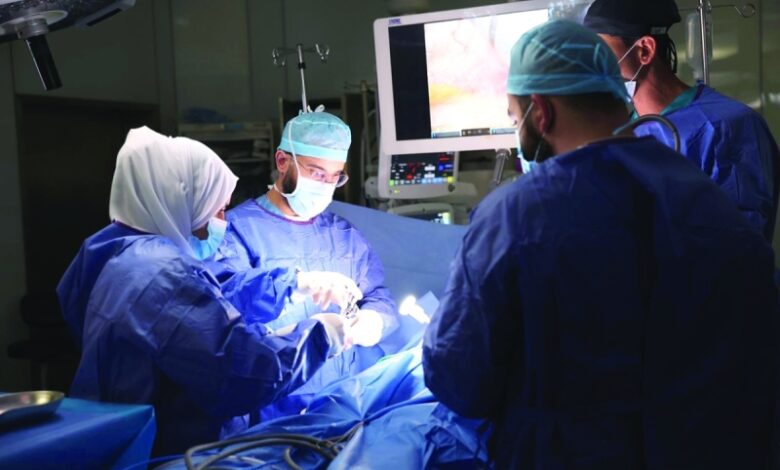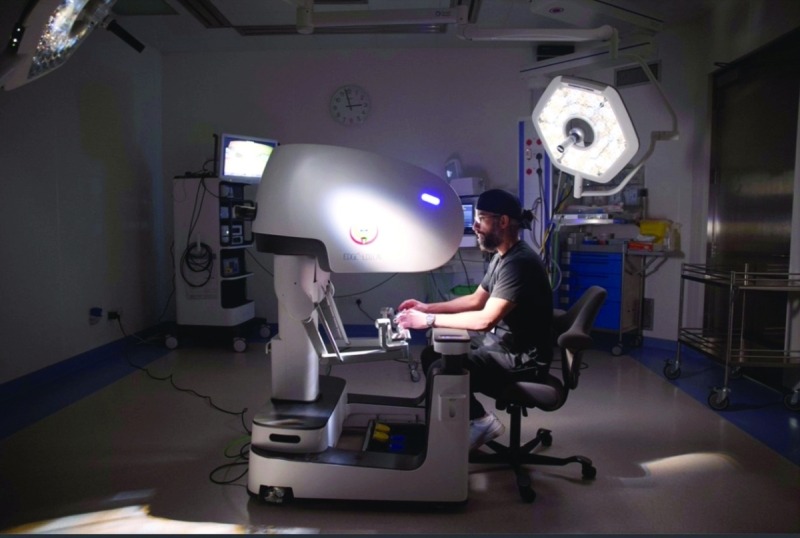Kuwait emerges as regional pioneer in robotic surgery
With successive achievements, cutting-edge infrastructure, and growing investment, Kuwait is cementing its status as a regional reference point in robotic surgery and positioning itself as a future hub for medical innovation.

Robotic surgery in Kuwait has moved from concept to reality, with the country positioning itself as a regional leader in advanced medical technology.
Since the introduction of the da Vinci Xi system at the Sabah Al-Ahmad Kidney and Urology Center in 2014, more than 1,800 robotic operations have been performed across government hospitals, supported by over seven surgical robots.

Robotic systems are now used for complex procedures, including prostatectomy, kidney tumor removal, cystectomy, treatment of congenital urinary tract anomalies, bariatric and abdominal surgeries, and colon operations.
Patients benefit from reduced pain, minimal bleeding, shorter hospital stays, and faster recovery.
Kuwait has also achieved regional and global milestones in remote surgery.
The first cross-border robotic partial prostatectomy in the Middle East was carried out with a surgeon in China and the patient in Kuwait.
Since then, remote operations have been conducted with France and Shanghai, culminating in July 2025 with the first Europe–Middle East cross-border procedure in Strasbourg. Kuwait also set a global record by performing the longest remote robotic surgery, connecting Kuwait and Brazil over a distance of 12,000 kilometers.
Jaber Al-Ahmad Hospital has played a key role in expanding robotic general surgery since 2020, performing the country’s first robotic radical nephrectomy and later surpassing 100 robotic operations in 2022.
Al-Farwaniya Hospital has introduced robotic techniques in gastric sleeve and hernia repair surgeries, while Kuwait became the first in the region to conduct a fully robotic knee replacement in 2022 using the MAKO system, also deployed in private hospitals.
To sustain this momentum, the Ministry of Health has invested heavily in advanced robotic systems, each costing around KD 1 million, with a focus on efficiency, reducing medical errors, and enhancing patient safety. Minister of Health Dr. Ahmed Al-Awadhi emphasized that training national medical staff is a priority to achieve self-sufficiency and localize these technologies.
The sector is also showing strong economic potential. The surgical robotic systems market in Kuwait was valued at US$38 million in 2024 and is projected to grow to US$59.8 million by 2030, at a compound annual growth rate of 7.9%.
Meanwhile, the robotic surgery services market, covering training, maintenance, and software, is expected to nearly double from $5.3 million in 2023 to US$10 million by 2030.
Officials highlight seven key benefits of robotic surgery: improved medical outcomes through 3D vision technology; shorter recovery times; reduced hospital stays; stronger digital infrastructure; decreased reliance on treatment abroad; readiness for future medical requirements; and a stronger international reputation as a hub for smart healthcare.
With successive achievements, cutting-edge infrastructure, and growing investment, Kuwait is cementing its status as a regional reference point in robotic surgery and positioning itself as a future hub for medical innovation.
Follow The Times Kuwait on
X, Instagram and Facebook for the latest news updates






















